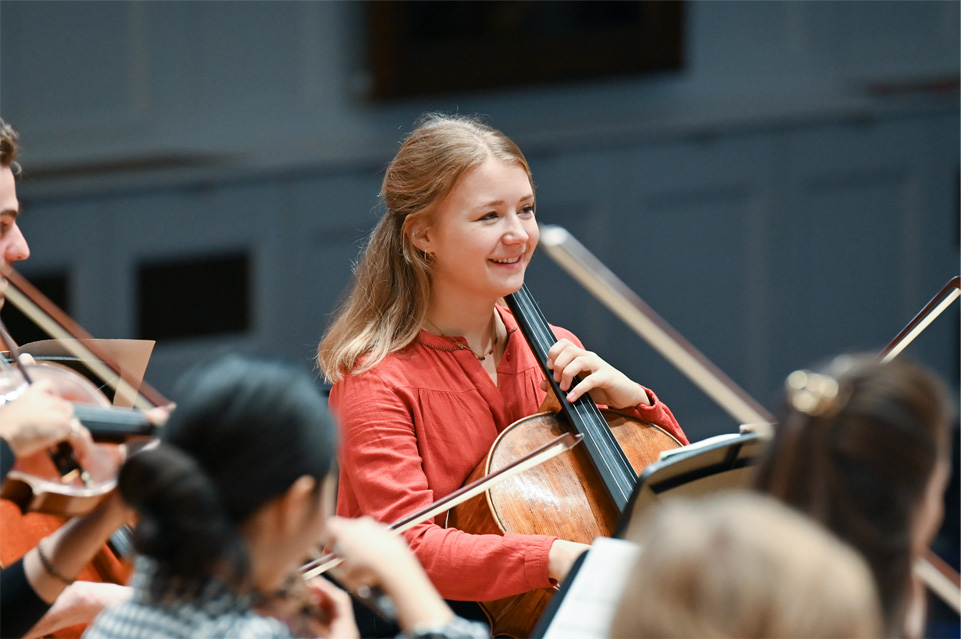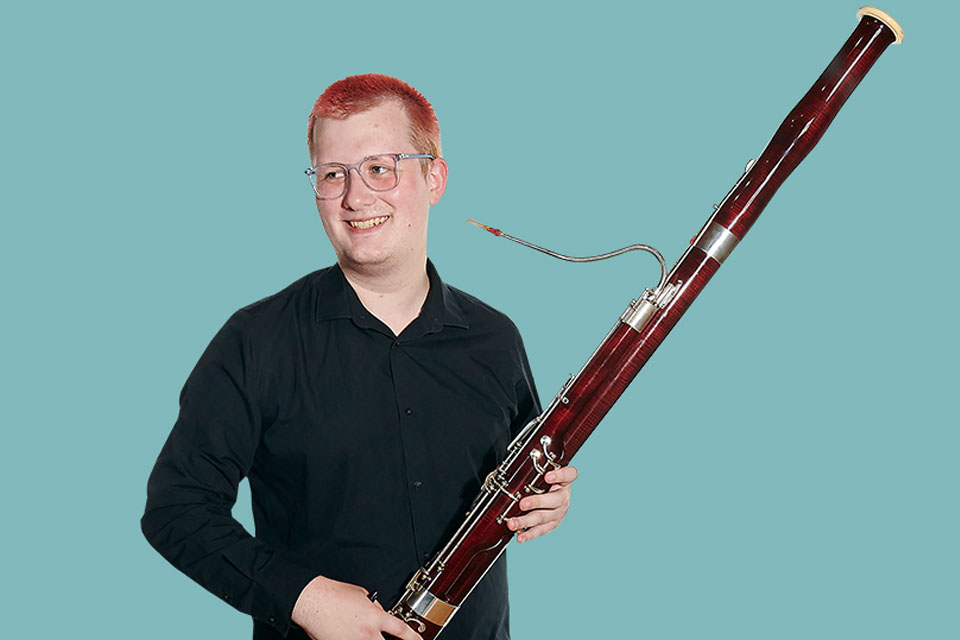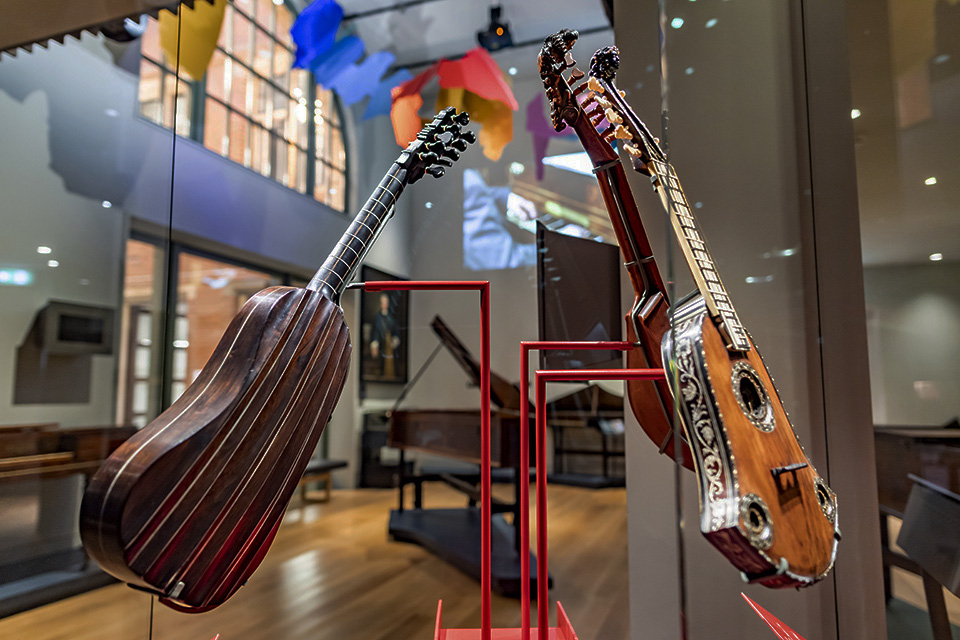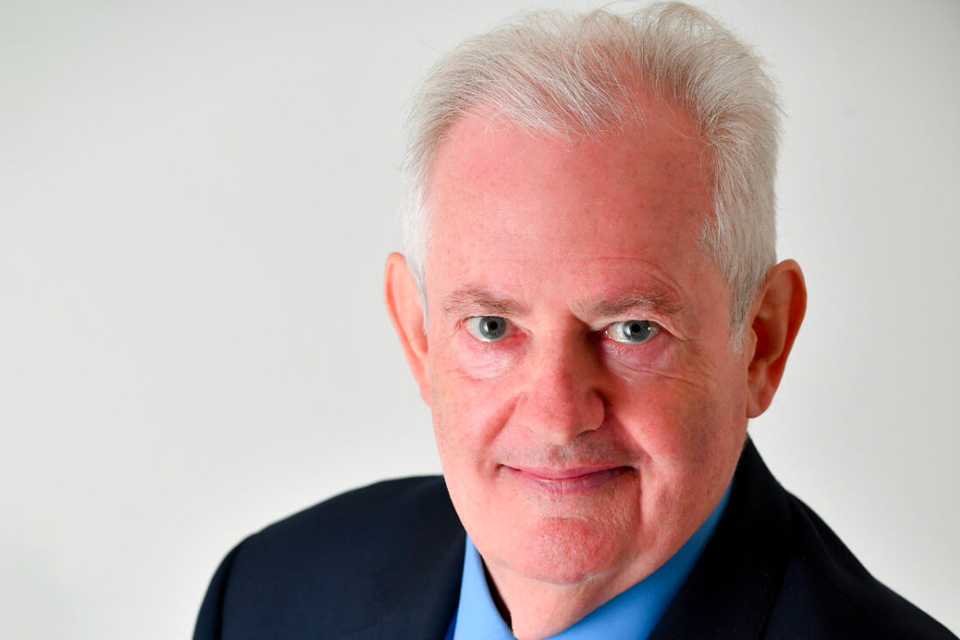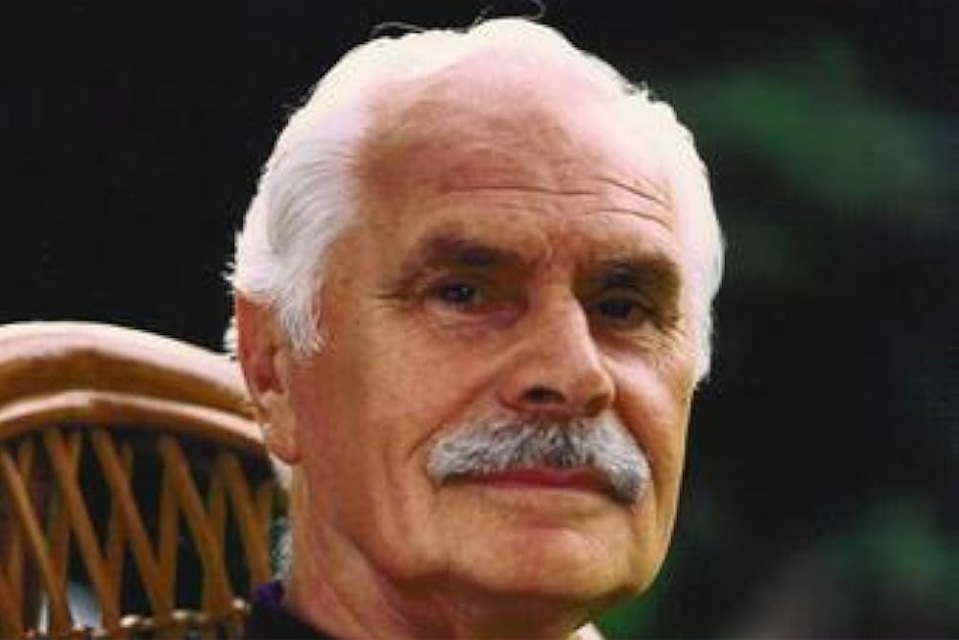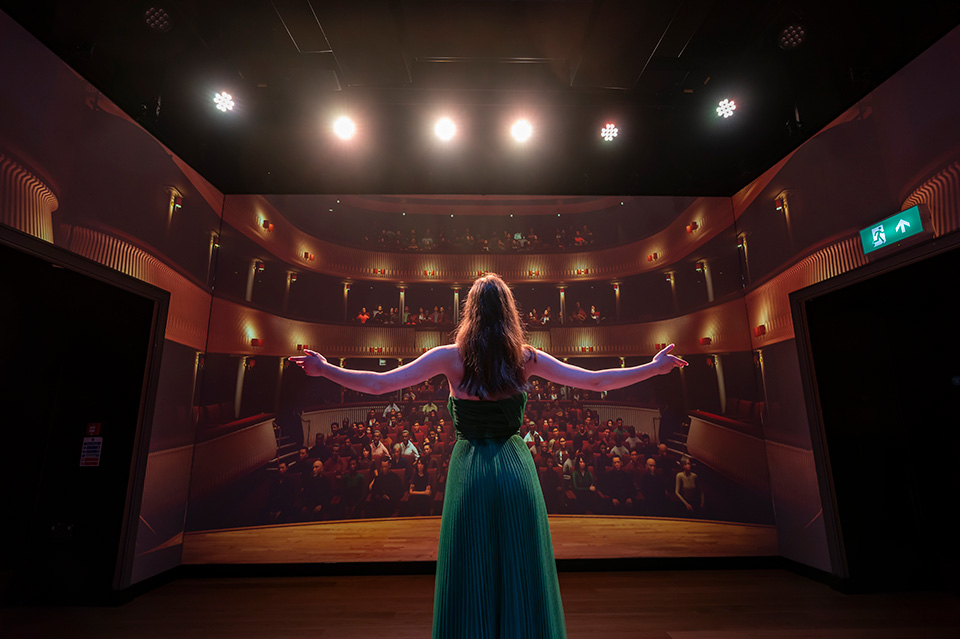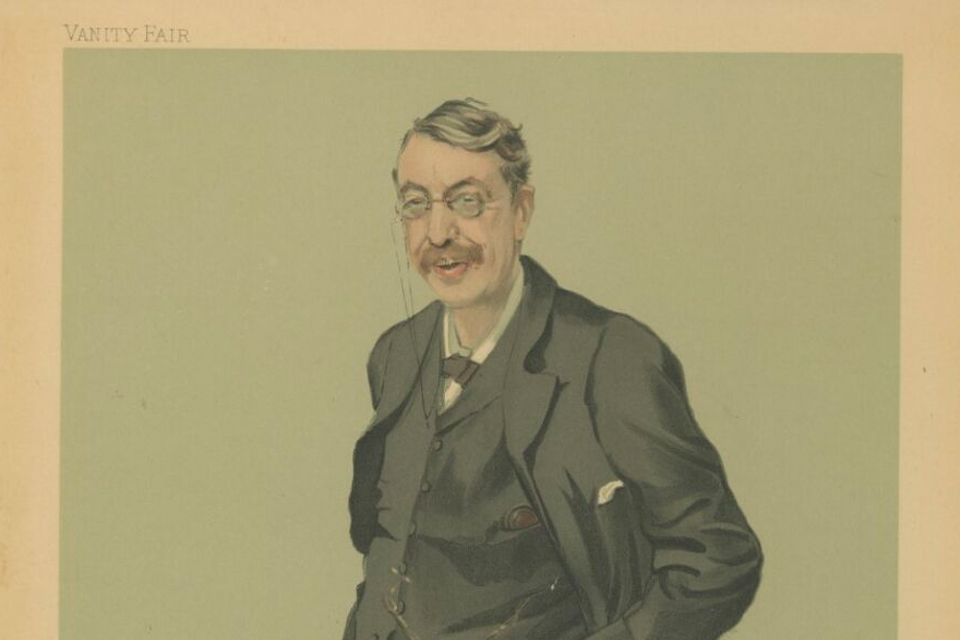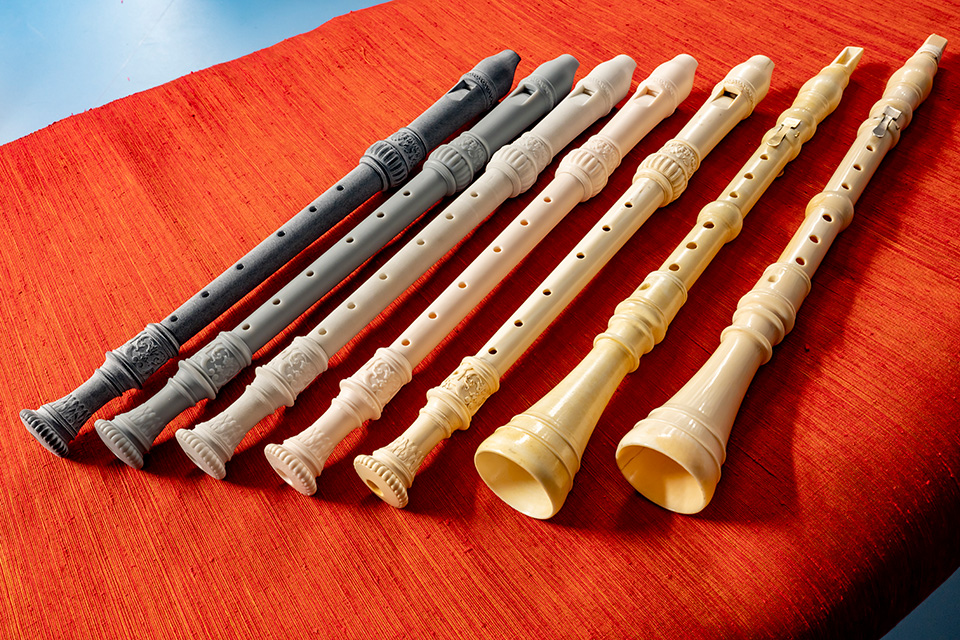In memory
The Royal College of Music was saddened to learn of the deaths of a number of people associated with the College.
Samy Qoraiche-Sahraoui
The Royal College of Music is deeply saddened by the news that Composition for Screen student, Samy Qoraiche-Sahraoui, has passed away following an unexpected illness.
Samy has managed a challenging health condition since being diagnosed with Duchenne Muscular Dystrophy at the age of 12 and was an inspiration to all who knew him.
The summer printed edition of Upbeat will contain an obituary.
Laurie Johnson
Laurie Johnson, who studied at the Royal College of Music and went on to compose some of the UK’s best loved television themes and film scores, has died at the age of 96.
Laurie Johnson was born in Hampstead and attended the Royal College of Music, studying with Vaughan Williams and Howells as well as taking trumpet lessons with Ernest Hall. After four years in the Coldstream Guards, with whom he played the French horn, he went into the entertainment industry, winning an Ivor Novello Award in 1959. In 1960 he began writing and conducting for the KPM Music Library, producing a large quantity of light orchestral library music – much of it still used today – during the years that followed.
In 1961 Laurie entered the UK singles chart with his theme music to the British television series Top Secret, and it was as a composer of memorable TV and film music that he made his name. Between the 1960s and 1980s he composed over 50 themes and scores including The Avengers, The Professionals, Animal Magic and This is Your Life, while his film scores included Dr Strangelove. His flair for debonair themes and lush orchestration immediately immersed viewers in the world they were about to enter, establishing him as one of the most respected of all British composers for screen. His concert scores included several works for military band, Symphony: Synthesis for jazz ensemble and symphony orchestra, a tone poem called The Wind in the Willows, and a Concerto for Trumpet, Tenor Saxophone and Orchestra composed in 1999. He was made MBE in 2014 for services to music.
Laurie’s family said of the composer: ‘Laurie’s music touched the lives of millions around the world. Throughout his illustrious career, he composed numerous iconic scores, themes and soundtracks that graced our lives across film, TV, theatre and radio.’ They added: ‘We remember Laurie as an extraordinary individual who embraced life with passion and brought joy to so many. His kindness, compassion and infectious sense of fun and laughter will be profoundly missed by all that knew him.’
[image1]
Daphne Segre
Daphne Segre, a distinguished piano teacher and performer who was the first female Royal College of Music scholar from the Caribbean, died peacefully on 15 October 2023 in her flat in St George’s Square, Pimlico, where she had lived for over 60 years.
Daphne won a scholarship to study piano and cello at the College in 1944 at the age of 18. She arrived here by boat from Jamaica, leaving behind her mother and four siblings, with no notion of what to expect in this country.
She excelled at the College and her two-year scholarship was extended to four. She was awarded a LRSM in piano performance and a GRSM on graduation. She was greatly inspired by a special group of teachers: Helen Just for cello, Ivor James for chamber music and most especially Frank Merrick for piano. Daphne described him as ‘a special man, a man full of curiosity.’ Daphne was also one of a group of students chosen to play for a young Princess Elizabeth on her visit to the College.
After graduation, as well as continuing her performances, Daphne had a remarkable career as a teacher both privately from her flat in Pimlico, building up a list of eminent pupils, and at schools in Jamaica and London. She was in charge of instrumental music, orchestra and choir at Tiffin School in Kingston upon Thames, and later in life she returned to Jamaica as Principal of the School of Music, whose alumni include Willard White.
Her energy and lust for life, which carried Daphne to London as a teenager, lasted till the end. She was an incessant traveller and always politically engaged, serving on several United Nations committees promoting women’s rights and international cultural concerns.
She built an enormous circle of friends and gave many parties, with music always at the heart. Although she remained a proud Jamaican, she grew to love Britain and never forgot that it was the Royal College of Music that first spotted her talent and brought her to this country.
[image2]
John White
Pioneering composer John White, who studied and taught at the Royal College of Music, died on 4 January 2024 at the age of 87.
Born in Berlin to a German mother and English father, John White moved with his family to London at the start of the Second World War and, aged four, began piano lessons with Hélène Gipps, mother of composer and RCM alumna Ruth Gipps and a second-generation student of Brahms. As a teenager, White became interested in the music of Satie, Hindemith and Milhaud, and later that of Schoenberg, Berg, Webern and Stockhausen.
He entered the Royal College of Music in 1955 and graduated in 1958, studying composition with Bernard Stevens and piano with Arthur Alexander and Eric Harrison, as well as analysis in private lessons with Elisabeth Lutyens. It was hearing Messiaen’s Turangalîla-symphonie that spurred White towards a career in composition. He is thought to have been the first student at the RCM to play Messiaen, Satie and Schoenberg at a chamber recital. Alongside his skill as a pianist, White was an accomplished tuba player, and he wrote extensively for both instruments. He would later play bass trombone with the Royal Ballet Touring Orchestra and tuba in the London Gabrieli Brass Ensemble.
White became Professor of Composition at the Royal College of Music in 1961, with students including Roger Smalley, Brian Dennis and William York. He was also Head of Music at the Drama Centre London for four decades until March 2020, regularly wrote stage works including scores for the Royal Shakespeare Company and Royal National Theatre, and conducted numerous West End musicals.
Celebrated as a musical innovator, John White pioneered the early British form of minimalism called ‘systems music’. He wrote over 180 piano sonatas, 25 symphonies and 30 ballets. His works are featured on releases by NMC Recordings and Convivium Records, and a notable performance came in 2013 when White’s Chord-Breaking Machine was played at the BBC Proms.
[image3]
David Hoyland
Composer and keyboardist David Hoyland, who studied at the Royal College of Music, died on 3 January 2024.
David Hoyland studied composition with Herbert Howells, organ with Richard Latham and flute with Christopher Hyde-Smith at the Royal College of Music. After graduating he continued his studies with Howells and was admitted to the masterclass course of the Italian harpsichordist Ruggero Gerlin at the Academia Chigiana in Siena, Italy. David went on to study with Gerlin, a pupil of Wanda Landowska, in Paris. There he built his own double manual French harpsichord, on which he regularly gave recitals and recorded an album.
As an organist David gave recitals in the UK, France, Italy, Spain and Sweden, particularly of the French Romantic organ repertoire and the works of JS Bach. He recorded two CDs for the Caskabel label including an album of late 18th-century Spanish sonatas for organ, of which he gave the first modern performance at the International Festival in Santander in 1998. Fluent in French, Italian and Spanish, David was musical director of a number of Mozart operas, and conducted his own performing edition of Gluck’s Orfeo ed Euridice at St James’s Piccadilly.
David was a prolific composer with a particular interest in voices and wind instruments. He was equally confident when writing chamber works or for very large orchestral forces, which he handled with great skill. His output includes three full-scale symphonies, choral and theatrical pieces, and concertos for organ and harpsichord. He often conducted and performed his own works; the Concierto Antiguo written for a Spanish Baroque organ reflected his interest in early keyboard instruments. He wrote piano duets, sonatas for flute and clarinet, and for the unusual combination of clarinet with organ.
He was Director of Music and organist of St Simon’s RC Church in Putney for almost 40 years. He wrote liturgical music, motets and mass settings including the Mass of St Genesius for choir and orchestra. He wrote several one-act operas and musicals, including The Christmas Story – A Nativity Opera first performed at St Simon’s, and La Muerte de Armonia to a libretto by Spanish poet Antonio Colinas.
The last of his own works to be performed during his lifetime was Le Carnaval de Cras: ‘Procession, Reverie, Finale’ performed by his brother, pianist John Hoyland, with the Wallace Collection Brass Ensemble. John said of his brother: ‘There was always a forward drive and physicality in his music making, with every phrase filled with energy and life. Above all, his desire was to communicate fully and generously with the listener, without false sophistication but with total sincerity.’


